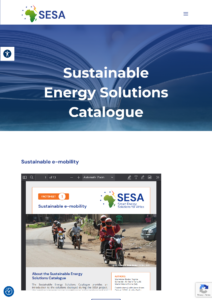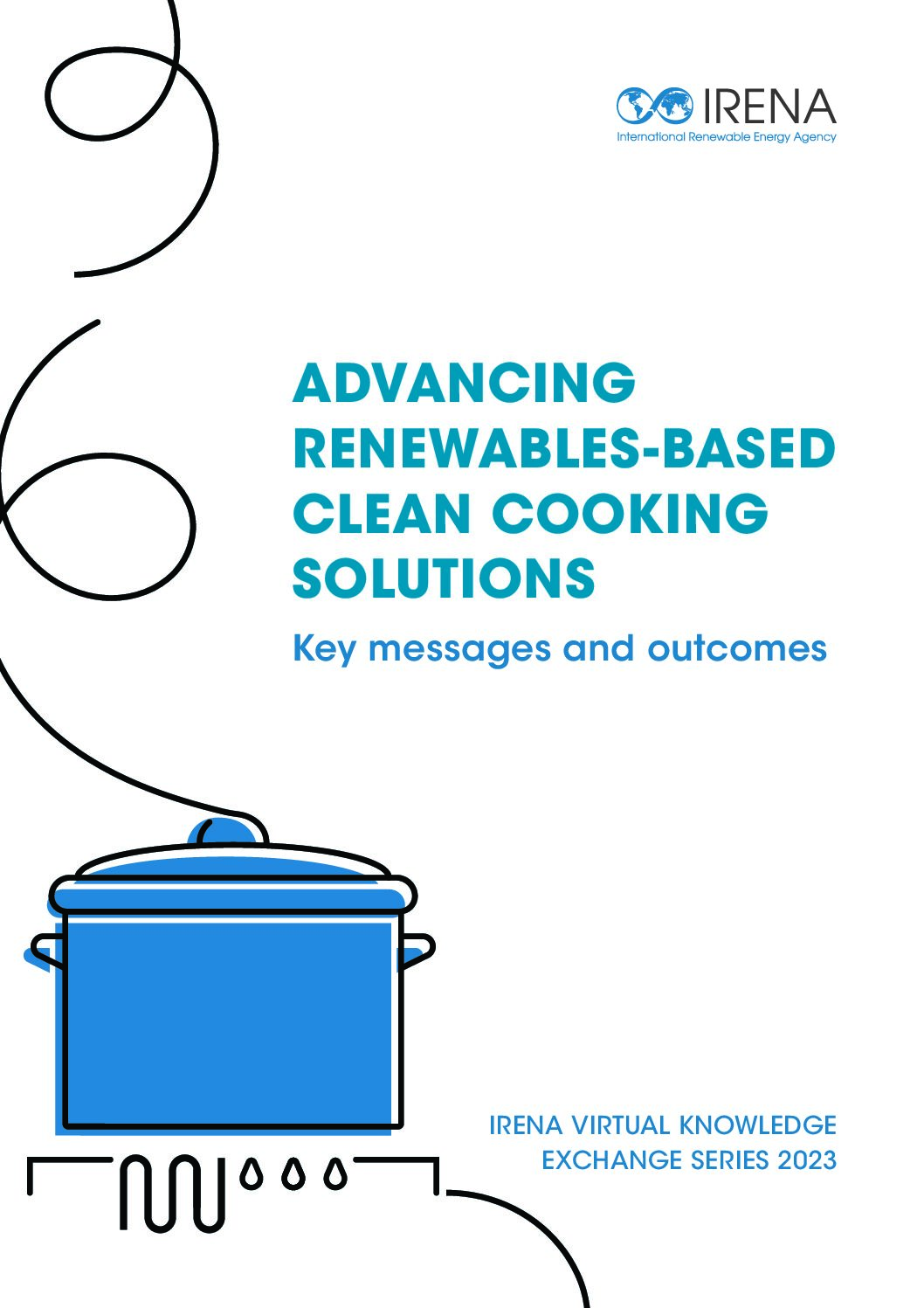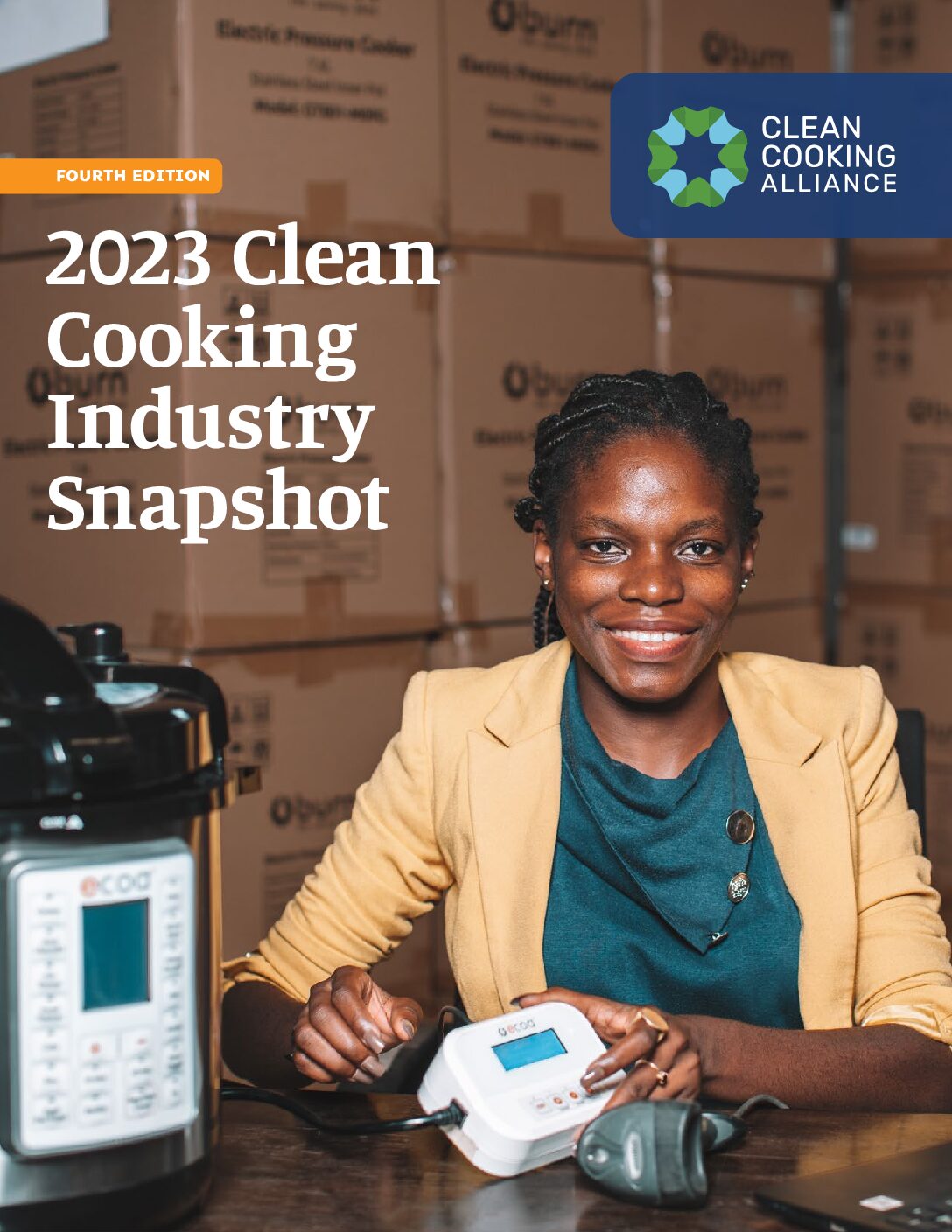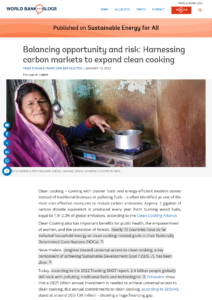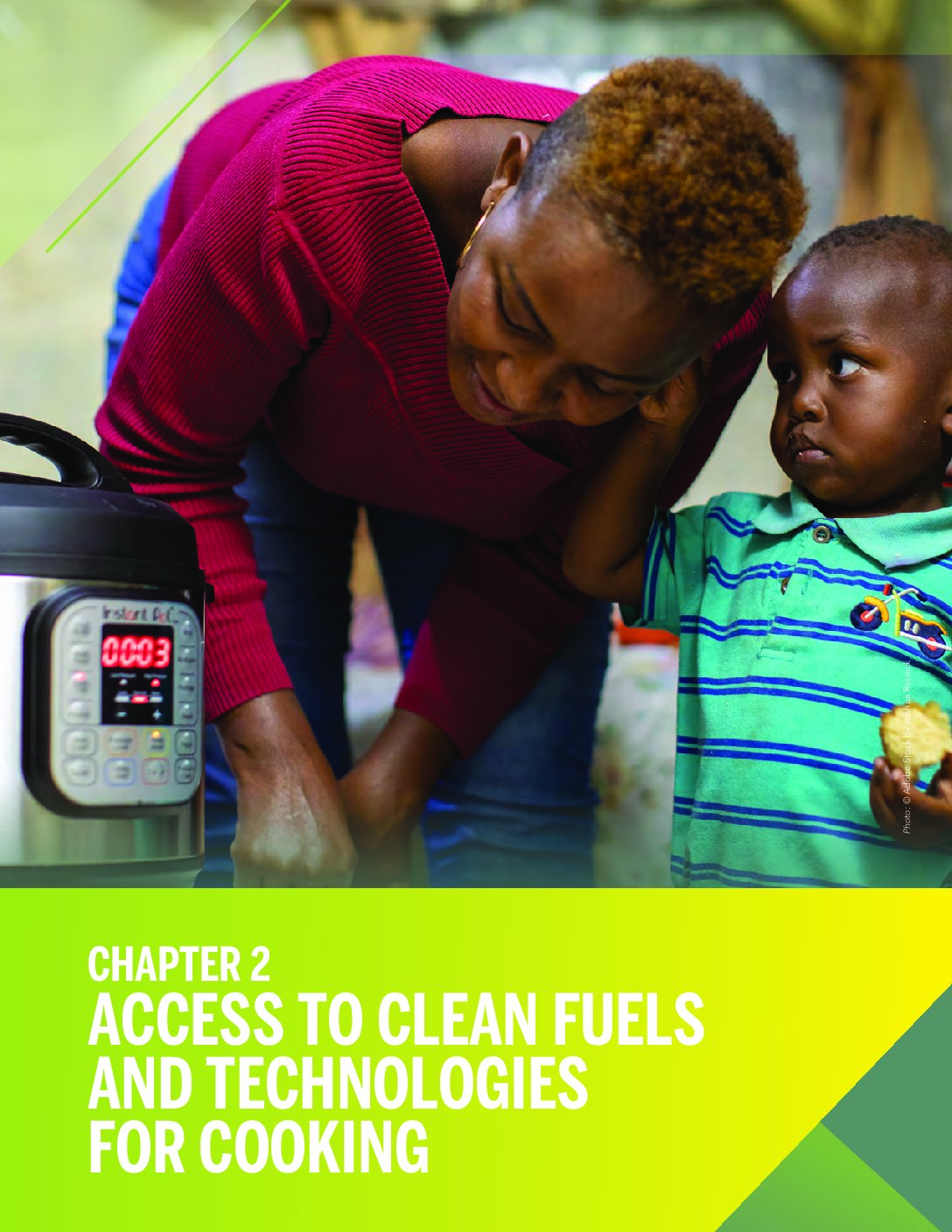The SESA Toolbox gathers step-by-step guides, videos and other materials to help stakeholders find, fund and implement solutions for a cleaner, more efficient energy future.
The Sustainable Energy Solutions Catalogue contains a series of briefs to help stakeholders plan, fund and implement projects related to: sustainable e-mobility, productive use of solar energy, second-life lithium-ion batteries, climate proofing sustainable energy solutions, solar mini-grids, the water-energy-food nexus, circularity and sustainable energy, clean cooking, energy efficiency, and e-waste from off-grid solar solutions.
This brief offers a summary of experiences, challenges and opportunities in the renewables-based clean cooking sector, and describes the actions needed to scale up adoption.
The report aims to inform prospective and current financiers of the clean cooking sector, as well as enterprises both in the sector and adjacent to it, of investment and operational trends and the significant impact that carbon revenue is having on the sector.
This blog assesses the opportunities of carbon finance to fill financing gaps for clean cooking, and highlights the integrity, reputational and regulatory risks associated with the sale of carbon credits.
This report illustrates the need for digital monitoring, reporting, and verification (D-MRV) systems to underpin future carbon markets. It discusses the available technologies, and barriers to their adoption, as well as guidelines, tools, and lessons learned to promote the use of these systems.
This chapter of the 2024 Tracking SDG 7 report provides an update on progress towards univeral access to clean cooking worldwide.
This report provides background information and guidance on the types of behavioural changes needed to advance access to clean cooking, and ways to promote these changes.
This blog and inforgraphic present the results of a World Bank study on the decision-making journey towards adopting and using clean cooking solutions in Rwanda, Madagascar and Ghana.
This document introduces measurement, reporting, and verification (MRV) approaches and recommendations as they apply to cooking energy interventions. It is intended for any professional involved in the planning, execution, or funding of clean cooking energy programs and projects that aim to reduce climate-harming emissions.

